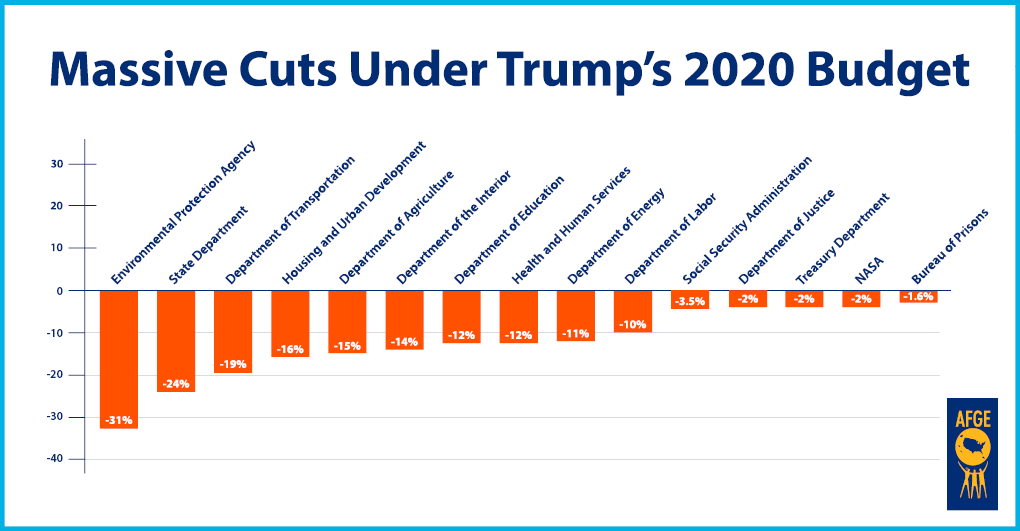The Trump administration funding cuts have raised significant concerns among academia, particularly at prestigious institutions like Harvard. By linking $9 billion in federal funding to compliance with controversial changes in university governance and the implementation of viewpoint audits, the administration has prompted fierce reactions from scholars and students alike. These funding cuts threaten to stifle academic freedom and impede advancements in scientific research universities, raising alarms about the potential impacts on innovation and critical inquiry. Many in the academic community argue that such moves not only undermine the integrity of higher education but also bring to light issues of antisemitism on campus, complicating the narrative around funding disbursement. As Harvard and other universities stand firm against these demands, the broader implications of these cuts for the landscape of higher education continue to unfold, affecting research and governance in ways that could weaken the foundational pillars of American scholarship and inquiry.
Recent financial retrenchments linked to the Trump administration’s policies have sparked a contentious debate regarding federal support for higher education. These reductions, which threaten the stability of numerous academic institutions, invoke fears over the integrity of university governance and the autonomy of scholarly pursuits. Scholars and students alike worry that the imposition of federal oversight, purportedly aimed at addressing antisemitism on campus, might instead result in a hindrance to the fostering of scientific innovation and intellectual freedom. As many within the academic sphere view these actions as a substantial threat to academic freedom, the reverberations are felt not only at universities but across the entire educational landscape. The discourse surrounding these funding cuts underscores the broader implications for how research and educational practices will evolve amidst stringent administrative directives.
Impact of Trump Administration Funding Cuts on University Research
The funding cuts imposed by the Trump administration have raised significant concerns among scholars and researchers, particularly at institutions like Harvard. The $9 billion in federal funding, which supports vital scientific and medical research, has been put at risk due to the administration’s push for compliance with changes that threaten academic freedom. Scholars argue that cutting off financial resources will not only stifle innovation but also lead to a stagnation in research capabilities, hindering the progress of groundbreaking discoveries necessary for societal advancement.
Moreover, the government’s decision to freeze over $2 billion in funding hours after Harvard’s rejection of their demands underscores a troubling trend where financial support is leveraged to influence university governance. This strategic maneuver has sparked a debate on the implications of such governmental overreach on academic institutions, which are designed to foster independent thought and inquiry. Institutions like Harvard play a pivotal role in nurturing the next generation of innovators; restricting funding based on politicized criteria jeopardizes not only the academic environment but also the broader implications for national scientific endeavors.
The Role of Academic Freedom in Scientific Advancement
Academic freedom is essential for fostering an environment where innovative ideas can flourish. As Amberly Xie noted, universities are the backbone of fundamental scientific research, paving the way for advancements that lead to significant societal improvements. The Trump administration’s funding cuts threaten this sacred principle, as they create a chilling effect where scholars might self-censor or steer away from controversial yet crucial topics for fear of losing financial support. When researchers feel pressured to conform to ideological demands, the very essence of inquiry is compromised.
Furthermore, the assertion made by experts like Joshua Cherniss highlights the necessity of protecting academic institutions from governmental interference. Universities should operate independently of political influence to ensure that the pursuit of knowledge remains unbiased and unfettered. This separation is critical not only for advancing scientific research but also for maintaining a diverse ideological landscape that benefits students and society at large. Without the freedom to explore and debate diverse ideas, academic institutions risk becoming echo chambers, stifling the creative and critical thinking that fuels progress.
The Consequences of Federal Funding Controls on University Governance
The push from the Trump administration to impose controls over university governance based on funding eligibility raises significant ethical questions surrounding autonomy in higher education. The notion that federal grants should be tied to compliance with specific ideological frameworks threatens university self-governance—a core principle that allows institutions to operate independently and pursue academic excellence without undue influence. This tactic can set a dangerous precedent, whereby funding becomes a tool for enforcing a specific worldview, rather than supporting diverse academic endeavors.
Additionally, the call for ‘viewpoint audits’ implies a level of oversight over academic departments that could further exacerbate tensions related to academic freedom. Scholars who fear retaliation for expressing unpopular opinions may opt for self-censorship, ultimately diminishing the richness of discourse essential for university life. This situation can also lead to broader implications of governance across institutions, impacting the long-term health of the academic ecosystem and its ability to contribute to societal growth and development.
Responses to Antisemitism on Campus and Funding Cuts
The administration’s concern over alleged antisemitism on campus has become a focal point for discussing the recent funding cuts affecting institutions like Harvard. While addressing antisemitism is critical, many scholars argue that using it as a justification for political maneuvers risks compelling universities to restrict academic discourse. Scholars like Andrew Tyrie emphasize that such strategies not only create a divisive atmosphere but also distract from genuine dialogue about bias, tolerance, and inclusion in higher education.
Educational institutions must confront issues of antisemitism and other forms of discrimination proactively, fostering environments that promote diversity and understanding. However, resorting to funding sanctions as leverage could result in superficial compliance rather than meaningful change. Universities must engage in self-reflection and governance reform willingly, without the threat of losing vital resources. Establishing open channels for dialogue and addressing underlying issues around campus climate is crucial for mitigating antisemitism while preserving the integrity of academic institutions.
The Future of Scientific Progress Amidst Policy Changes
The interplay between federal funding and scientific advancement is increasingly fraught with challenges as political pressures mount. Researchers at institutions like Harvard recognize that the loss of significant funding can have immediate and profound consequences on ongoing projects and future innovations. Cuts to funding not only slow down research but also jeopardize the collaboration and interdisciplinary efforts that often lead to breakthrough discoveries. In fields like applied physics and medical sciences, where continuous funding is crucial, these changes could cascade into broader implications for the scientific landscape and economic prospects.
As scholars navigate these turbulent waters, the future of science hangs in the balance. Institutions must advocate for their independence while continuing to engage with policymakers to articulate the broader impact of funding cuts. By highlighting the essential role that universities play in scientific innovation and national development, academic leaders can push back against policies that threaten to undermine their contributions. Promoting a deeper understanding of the intertwined nature of research funding and public interest will be critical as scientists and scholars work to ensure that academic institutions continue to thrive amidst shifting political tides.
Defending University Autonomy Against Political Influence
The defense of university autonomy has become a rallying point for scholars concerned about the increasing political influence over academic institutions. Calls from the Trump administration for compliance linked to funding constraints represent a broader threat to the principles of academic independence. Scholars like Joshua Cherniss emphasize that attempts to dictate the ideas taught in universities amount to an assault on intellectual freedom, raising alarms about the ramifications for liberal education.
As the academic community unites in opposition to these pressures, it becomes vital to establish clear boundaries between governance and political intervention. The resilience of institutions like Harvard in defending their academic missions against external pressures showcases the importance of maintaining a space for diverse viewpoints and debates. Protecting the integrity of university governance will not only safeguard academic freedom but will also preserve the long-term viability of educational institutions as beacons of learning and critical thought.
The Interdependence of Funding and Academic Integrity
The relationship between funding and academic integrity is a pressing concern in the current climate of political scrutiny. Funding from federal sources is essential for supporting university programs, but attaching conditions to these funds can compromise the very values that universities espouse. Scholars emphasize the importance of safeguarding academic integrity by ensuring that financial support is provided unconditionally, allowing institutions to uphold their commitment to free inquiry and innovation.
The complexity of this issue is compounded by the fact that scientific research often requires substantial funding to launch and sustain initiatives. When universities face the possibility of losing funding due to adherence to external mandates, the potential for compromised scholarship emerges. Universities must advocate for funding models that promote independence and integrity, recognizing that the advancement of knowledge thrives best in environments free from external pressures and constraints.
Addressing Bias and Promoting Inclusivity on Campus
In light of the funding cuts linked to accusations of antisemitism and bias on campus, institutions must address issues of inclusivity with intention and sincerity. Scholars have voiced concerns that politicizing these discussions could lead to tokenistic approaches rather than genuine efforts to create welcoming environments for all students. Promoting inclusivity must be a holistic endeavor that recognizes the diversity of experiences while fostering open dialogue around sensitive issues.
Creating a culture of respect and understanding demands active engagement from both faculty and students alike. Initiatives that prioritize education on diversity, inclusivity, and bias can strengthen community ties, reduce prejudice, and ultimately enhance the university experience. Without a commitment to meaningful engagement, efforts to combat bias may falter, further complicating the relationship between federal funding and university governance.
The Broader Implications of Funding Cuts on Academia
The implications of funding cuts extend beyond immediate financial impacts; they can reshape the landscape of academia as we know it. Scholars worry that these measures will disproportionately affect institutions that are already vulnerable, limiting their capacity to pursue ambitious research agendas. The cascading effects could lead to reduced opportunities for students and heightened competition among universities, which may unfairly disadvantage some institutions while privileging others.
Moreover, the long-term repercussions of these financial decisions can resonate throughout the scientific community and beyond. A generation of scholars may face diminished opportunities for research and collaboration, ultimately affecting technological innovations and healthcare advancements. Ensuring that academic institutions retain adequate funding and operational autonomy is paramount to maintain a vibrant, competitive, and pioneering academic sector.
Frequently Asked Questions
What are the implications of the Trump administration funding cuts on Harvard’s academic freedom?
The Trump administration funding cuts have raised significant concerns regarding academic freedom at Harvard and similar institutions. These cuts threaten to undermine the autonomy of universities by linking federal funding to compliance with government demands on university governance and hiring practices. Scholars worry that such measures could stifle intellectual diversity and academic inquiry, which are essential to research and education.
How do the Trump administration funding cuts affect scientific research universities?
The Trump administration funding cuts are poised to severely impact scientific research universities like Harvard by freezing over $2 billion in federal funding. This funding is crucial for advancing groundbreaking research in various fields, including medicine and engineering. The cessation of these funds can hinder pivotal research projects and ultimately slow down innovation and scientific progress.
What are the potential effects of the Trump administration funding cuts on antisemitism on campus?
While the Trump administration has cited antisemitism on campus as a justification for funding cuts, many argue that these measures may have adverse effects. The funding cuts can exacerbate tensions and create a chilling effect on open dialogue, which is essential for addressing issues of discrimination, including antisemitism. Instead of fostering solutions, these cuts might inhibit the ability of universities to effectively combat such problems.
Why is university governance a concern in the context of Trump administration funding cuts?
University governance is at stake with the Trump administration funding cuts as the government seeks to impose regulations that threaten the self-governance of academic institutions. By dictating changes in university operations and hiring practices, these cuts challenge the independence of universities, which are foundational for maintaining academic integrity, freedom, and diverse perspectives in research and teaching.
How might cuts in federal funding from the Trump administration affect research output at Harvard?
Cuts in federal funding from the Trump administration could significantly decrease research output at Harvard. Many groundbreaking research initiatives rely on federal support for funding, and the sudden loss of these resources may force researchers to scale back or cease important projects. This decline in research productivity can have long-term detrimental effects on innovation and important discoveries that benefit society as a whole.
What arguments are being made against the Trump administration funding cuts in terms of academic integrity?
Opponents of the Trump administration funding cuts argue that they create a threat to academic integrity by attempting to impose government oversight on universities. This effort to control academic activities undermines the fundamental principles of free inquiry and open debate, which are crucial for the advancement of knowledge. Critics advocate for the need to protect academic spaces from political influence to ensure that scholarship remains independent and impactful.
| Key Point | Details |
|---|---|
| Harvard’s Funding Rejection | Harvard rejected the Trump administration’s demands linking $9 billion in federal funding to governance and hiring changes. |
| Funding Freeze Impact | Over $2 billion in federal funding was frozen shortly after Harvard’s response, affecting critical research. |
| Concerns Over Academic Freedom | Scholars express that funding cuts may violate research rights and hinder scientific progress. |
| Political Commentary | Experts express concerns that Trump’s decisions weaken the U.S. and threaten security, growth, and academic independence. |
| Impact on Research | A potential reduction in essential research in various fields, including medical sciences and technology, due to funding cuts. |
Summary
Trump administration funding cuts are causing significant alarm within academic institutions like Harvard. The administration’s demands for compliance linked to $9 billion in funding have raised critical issues regarding academic freedom and research rights. As federal funding is frozen, scholars warn that these actions could impede groundbreaking research and technological advancements, ultimately weakening the United States’ global position.



